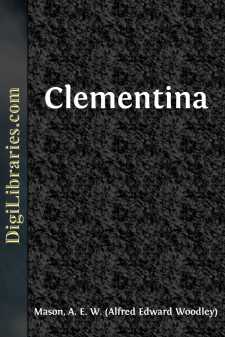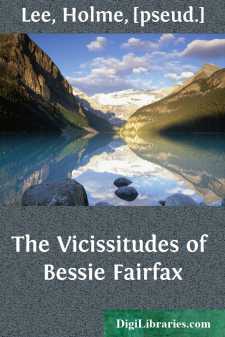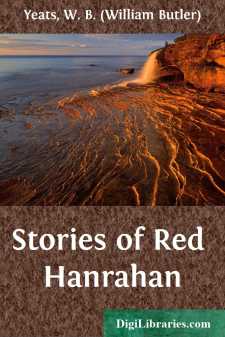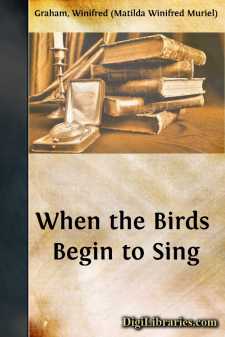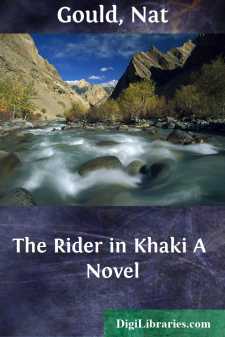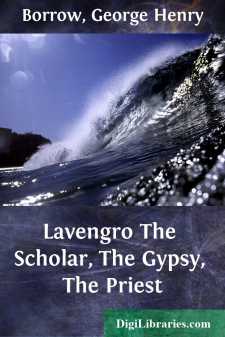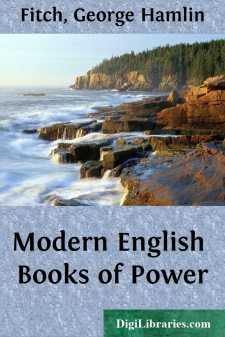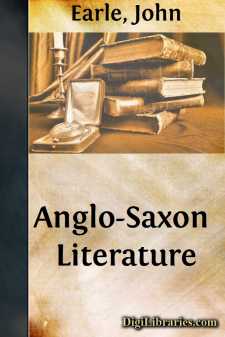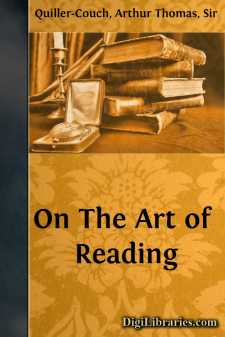Literary Collections
- American 84
- Ancient, Classical & Medieval 14
- Asian 1
- Australian & Oceanian 1
- Canadian 55
- Continental European 121
- English, Irish, Scottish, Welsh
- Essays 160
- General 24
- Letters 46
- Middle Eastern 1
English, Irish, Scottish, Welsh Books
Sort by:
CHAPTER I The landlord, the lady, and Mr. Charles Wogan were all three, it seemed, in luck's way that September morning of the year 1719. Wogan was not surprised, his luck for the moment was altogether in, so that even when his horse stumbled and went lame at a desolate part of the road from Florence to Bologna, he had no doubt but that somehow fortune would serve him. His horse stepped gingerly...
more...
by:
Holme Lee
CHAPTER I. The years have come and gone at Beechhurst as elsewhere, but the results of time and change seem to have almost passed it by. Every way out of the scattered forest-town is still through beautiful forest-roads—roads that cleave grand avenues, traverse black barren heaths, ford shallow rivers, and climb over ferny knolls whence the sea is visible. The church is unrestored, the parsonage is...
more...
RED HANRAHAN. Hanrahan, the hedge schoolmaster, a tall, strong, red-haired young man, came into the barn where some of the men of the village were sitting on Samhain Eve. It had been a dwelling-house, and when the man that owned it had built a better one, he had put the two rooms together, and kept it for a place to store one thing or another. There was a fire on the old hearth, and there were dip...
more...
CHAPTER I. She was certainly very pretty, and just then she looked prettier than usual, for the sharp run had brought a more vivid colour to the cheek, and an added sparkle to the eye. She was laughing, too—the rogue—as well she might, for had she not brought her right hand swiftly down upon his left ear when he had chased her, caught her, and deliberately and maliciously kissed her, and did he not...
more...
by:
Nat Gould
CHAPTER I "WILL HE MARRY HER?" "Do you think he will marry her?" asked Harry Morby. "Does anybody know what he will do," replied Vincent Newport, discussing their host Alan Chesney, of Trent Park, a beautiful estate in Nottinghamshire, close to the Dukeries, Sherwood Forest, and the picturesque village of Ollerton. In the billiard room they had just finished a game of a hundred...
more...
In the following pages I have endeavoured to describe a dream, partly of study, partly of adventure, in which will be found copious notices of books, and many descriptions of life and manners, some in a very unusual form. The scenes of action lie in the British Islands;—pray be not displeased, gentle reader, if perchance thou hast imagined that I was about to conduct thee to distant lands, and didst...
more...
Introduction My aim in this little book has been to give short sketches and estimates of the greatest modern English writers from Macaulay to Stevenson and Kipling. Omissions there are, but my effort has been to give the most characteristic writers a place and to try to stimulate the reader's interest in the man behind the book as well as in the best works of each author. Too much space is devoted...
more...
by:
John Earle
CHAPTER I. A PRELIMINARY VIEW. Anglo-Saxon literature is the oldest of the vernacular literatures of modern Europe; and it is a consequence of this that its relations with Latin literature have been the closest. All the vernacular literatures have been influenced by the Latin, but of Anglo-Saxon literature alone can it be said that it has been subjected to no other influence. This literature was nursed...
more...
LECTURE I INTRODUCTORY WEDNESDAY, OCTOBER 25, 1916 I In the third book of the "Ethics", and in the second chapter, Aristotle, dealing with certain actions which, though bad in themselves, admit of pity and forgiveness because they were committed involuntarily, through ignorance, instances 'the man who did not know a subject was forbidden, like Aeschylus with the Mysteries,' and...
more...


